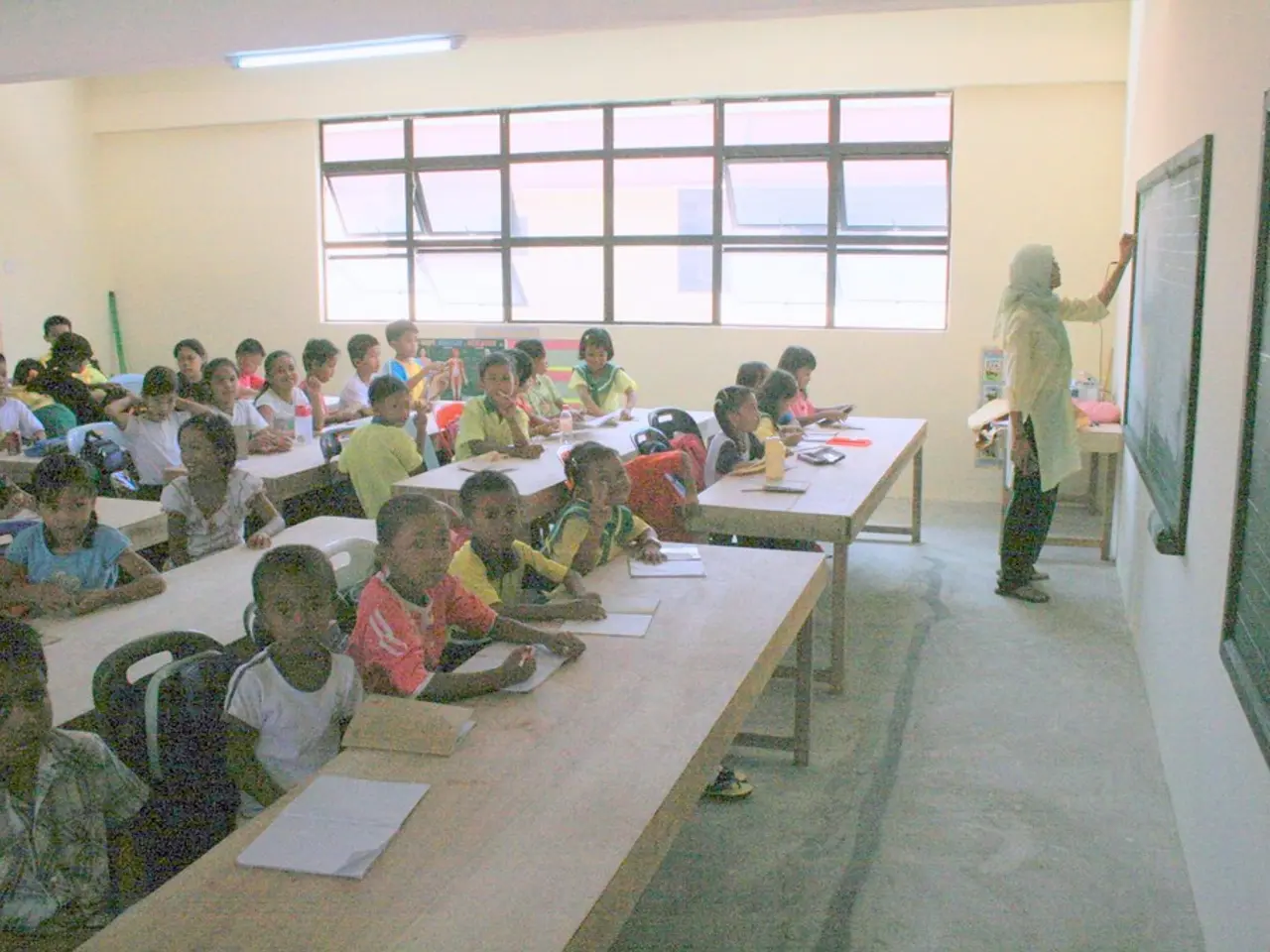Campaign for Improving Menstrual Management: Strengthening Individuals' Control Over Their Periods
Improving Menstrual Health Education with the Period Education Project (PEP)
The Period Education Project (PEP) is a nonprofit organization making waves in the health education sector. Recognized as a Healthy People 2030 Champion, PEP is dedicated to providing accurate, stigma-free information about menstruation and related topics to young people [1].
Key Features of PEP
PEP offers comprehensive, frank education that addresses common questions and stigmas related to menstruation. This includes topics such as body hair, vaginal discharge, and other bodily changes during puberty [1]. The organization has developed strong partnerships with 15 medical schools, conducting 32 PEP rallies, demonstrating a robust community and academic engagement network [1]. PEP also provides digital content through blogs, offering accessible information in a relatable format to both youth and educators [1].
Workshops and Education Programs
PEP delivers community engagement programs, often grant-funded and designed to be comprehensive health education centered around menstrual health. These workshops likely incorporate peer education elements, consistent with evidence that peer-led interventions improve knowledge and attitudes related to health among adolescents [2]. The educational content addresses misconceptions and taboos, aiming to normalize conversations about menstruation and body health to promote better understanding and management [1][5].
Impact on Menstrual Health Education
As a Healthy People 2030 Champion, PEP's work is acknowledged for advancing national health goals related to adolescent health education [1]. Through partnerships and direct educational outreach, PEP increases awareness and reduces stigma among young people about menstruation, potentially leading to improved health outcomes and empowerment in managing menstrual health [1][5]. Peer education programs similar to those promoted by PEP have evidence supporting their effectiveness in increasing knowledge and health-positive behaviors in school-aged populations globally [2].
The Need for PEP
In the US, more than two-thirds of low-income women and girls lack access to adequate period products, and only a few states require medically accurate reproductive health education [3]. In addition, 1 in 5 girls miss school due to lack of period protection, and the average number of years a woman experiences symptoms before being diagnosed with endometriosis is 10 [4]. PEP workshops cover topics such as female reproductive anatomy, the menstrual cycle, menstrual and health tracking, safe period management, and stigma-reducing myth-busting [5].
By providing essential education, PEP can boost self-esteem, provide necessary knowledge about menstrual health, and help young people develop preventative abilities. Young people who receive this education can learn how to advocate better for their own health and eliminate stigmas associated with menstruation [6]. Medical students can serve as role models for young people in their neighborhood, while also understanding the clinical aspects of adolescent menstrual health and developing public speaking and communication skills [7].
In summary, the Period Education Project (PEP) utilizes peer education workshops, community engagement, and accessible educational content to provide accurate, destigmatized menstrual health education to young people. This approach has significant recognition and impact in the public health and education sectors [1][2][5].
[1] Period Education Project. (n.d.). About. Retrieved from https://www.periodeducationproject.org/about [2] Peer-led interventions for adolescents. (2020). Cochrane Database of Systematic Reviews. Retrieved from https://www.cochranelibrary.com/cdsr/doi/10.1002/14651858.CD010352.pub2/full [3] National Women's Law Center. (2019). State Policies on Free Menstrual Products in Schools. Retrieved from https://nwlc.org/resources/state-policies-on-free-menstrual-products-in-schools/ [4] American College of Obstetricians and Gynecologists. (2015). Endometriosis. Retrieved from https://www.acog.org/womens-health/faqs/endometriosis [5] Period Education Project. (2021). Workshops & Programs. Retrieved from https://www.periodeducationproject.org/workshops-programs [6] Period Education Project. (n.d.). Impact. Retrieved from https://www.periodeducationproject.org/impact [7] Period Education Project. (n.d.). Partners & Sponsors. Retrieved from https://www.periodeducationproject.org/partners-sponsors
The Period Education Project (PEP) extends its reach beyond menstrual health, also focusing on the broader context of education and self-development, aiming to empower young people with knowledge about health-and-wellness and women's health. Through the learning resources provided, PEP fosters an environment that encourages curiosity and promotes science and understanding of various topics. By addressing common questions and stigmas related to menstruation and other topics, PEP contributes to a more inclusive and comprehensive learning environment, aligning with the goals of improving overall health-and-wellness and women's health.




